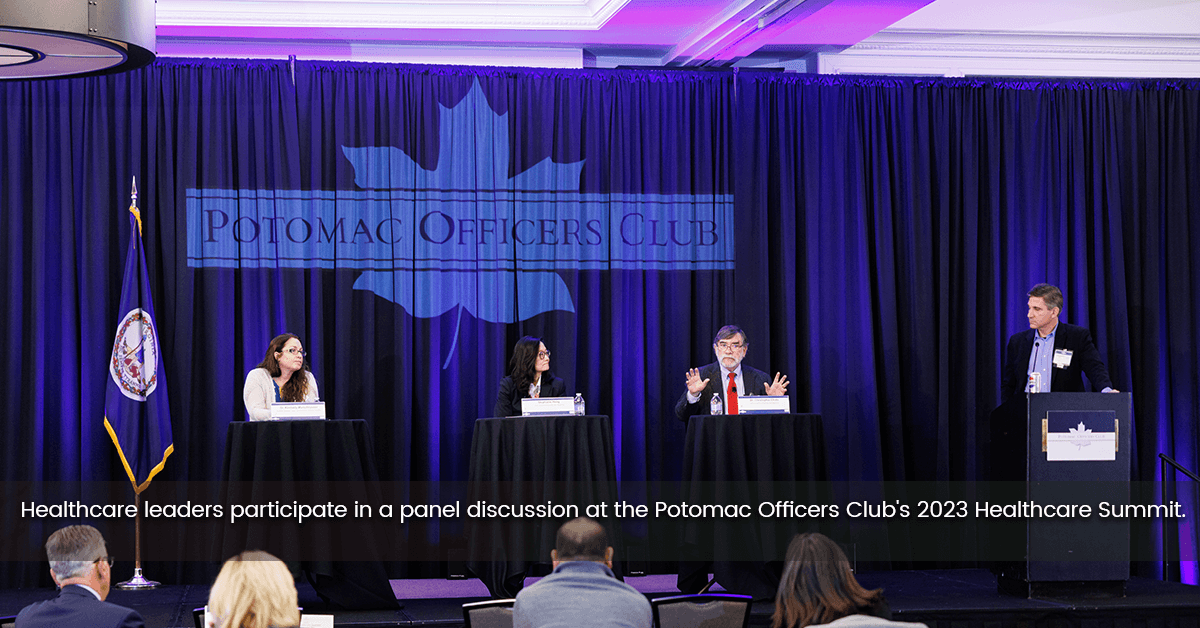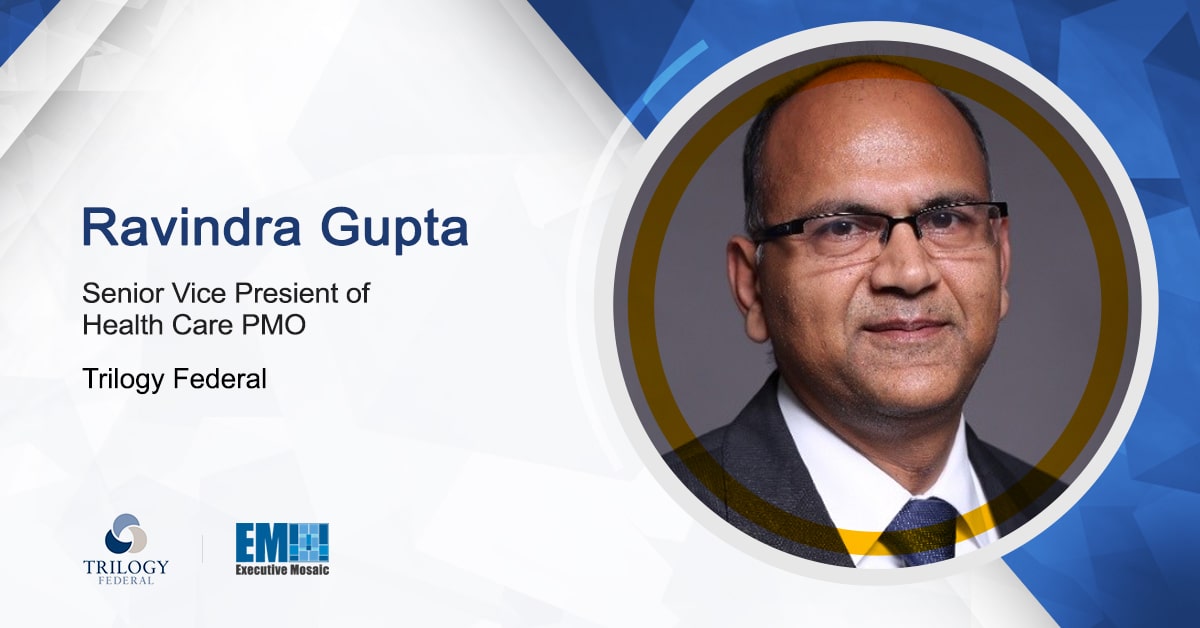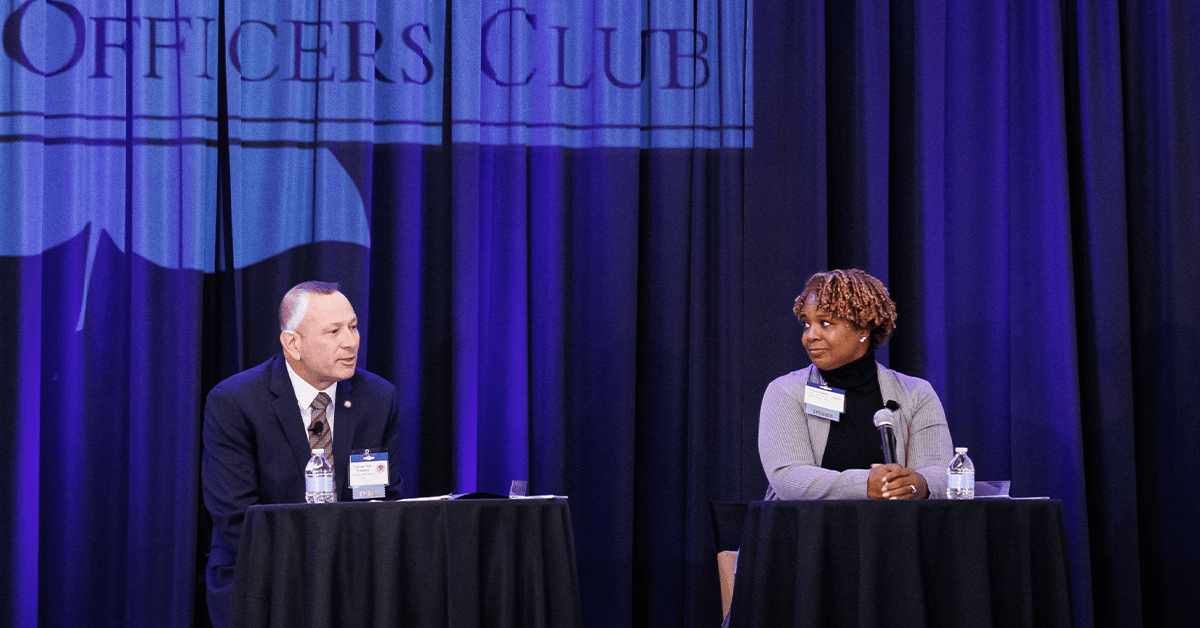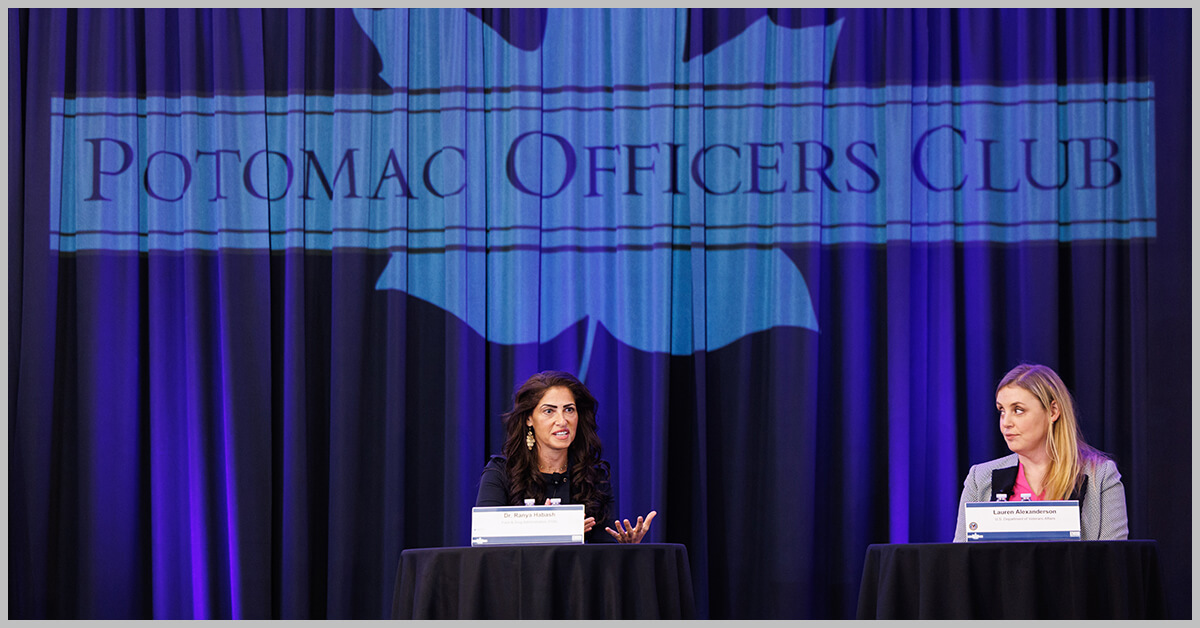Data is a foundational element of medical research and patient care, offering those working in the healthcare sector with insights into broad trends in the field and specific needs of individual patients.
One way providers make these connections is by analyzing consented data, or information that has been approved for collection by an individual.
During a panel discussion at the Potomac Officers Club’s 2023 Healthcare Summit last week, Dr. Christopher Chute, Bloomberg Distinguished Professor of health informatics at Johns Hopkins University and Medicine, said that this type of data enables longitudinal research that could not be conducted without being able to track treatment results and other factors relevant to a patient’s care.
“When you get sick and go to the medical center, something happens and you follow up, that is maybe 20, 30 percent of what is happening to you with a certain disease,” said Stephanie Hong, director of translational informatics application at the Biomedical Informatics and Data Science Section at Johns Hopkins University and Medicine.

“There is the pharmacy visit, there are short mental health visits, the types of food that you eat, the location you were,” she elaborated. She noted social determinants of health as another aspect of understanding a patient.
Dr. Kimberly Marschhauser, associate director of the Patient-Centered Outcomes Research Institute, emphasized the importance of being able to follow up with patients regarding the impacts of their treatments. When patients consent to the use of their data, providers are able to ask for additional information, such as positive or negative outcomes of a prescribed medication, to help understand a patient’s needs.
Hong added that collecting various metrics and returning this data to patients via their phones or other devices can help educate them on their condition.
Though consented data is useful for these kinds of healthcare practices, it cannot always provide a clear picture of wider health trends. According to Chute, relying solely on consented data for large studies will often yield an incorrect answer.
“The problem is the people that consent are different than the people who don’t, and our goal in society is to make sure that we have a comprehensive, cohesive and valid analysis of the questions we’re asking underrepresented persons,” he explained.
Hong highlighted COVID-19 research as a positive example of using unconsented data. In this case, she said, the scope of relevant studies allowed researchers to answer important questions and produce “enormous benefit to society and to the patients.”
Despite the merits of unconsented data, Chute emphasized that in cases of direct experimentation, all documentation must be consented.
“When I talk about unconsented research, it’s observational only. You make no interventions, you make no changes when you do experimentations. You just observe what happens, whereas a trial by design does involve some kind of intervention,” he explained.

The Potomac Officers Club’s next summit, the 10th Annual Defense R&D Summit, will bring together public and private sector experts to discuss the top challenges and priorities shaping the current defense R&D landscape. To learn more and register to attend the event, click here.







